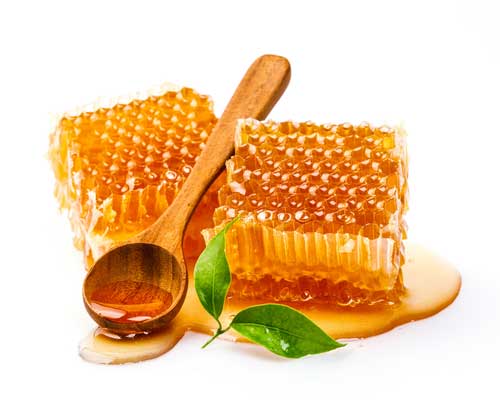Recently, a paper published in the Nutrients journal explored the potential benefits of honey. Its Anti-inflammatory, Antibacterial, Immune-boosting, and Prebiotic properties are discussed. But, before you read about these benefits, let us know more about MetS. This is a cluster of specific risk factors that affects nearly one third of US adults. The risk factors include a large waistline, high blood pressure, high harmful triglycerides, low “good” HDL cholesterol, and high sugar levels.
Anti-inflammatory properties
Honey has anti-inflammatory properties and has a long history as a nutritional and therapeutic agent. It has been used in traditional medicine and is produced throughout the world. Its main nutrients are glucose and fructose. Honey is also an excellent antioxidant and aids in wound healing. In addition, recent research has identified its antibacterial and antiproliferative properties.
Antimicrobial activity is a major reason why honey is used in wound dressings. However, the antimicrobial activity varies between types of honey and among different floral sources. Ultimately, these differences reflect the environmental and geographic conditions where the honey is harvested. This means that the healing power of honey varies significantly.
Inflammation is a natural reaction of the immune system to a pathogen. It involves changes in the body such as increased blood flow and leukocyte infiltration. It also releases localized chemoattractants to recruit immune cells. Typically, these responses are meant to eliminate pathogen agents and repair damaged tissue. However, non-resolving inflammation can lead to various chronic diseases. Try it today. Improve health with Kamagra 100 mail order.
Antibacterial properties
Honey’s antibacterial properties are attributed to the presence of polyphenols, antioxidant enzymes, and vitamin C. Several other factors are also responsible for the antioxidant activity of honey, including carotenoids, amino acids, and proline. All of these components were present in significant quantities in some types of honey.
Honey is also rich in polyphenols, hydrogen peroxide, fatty acids, and amylase. These components have antimicrobial properties that are largely dependent on the amount of each, as well as the way they are processed. Moreover, research shows that no organism has yet developed resistance to honey’s antimicrobial properties.
Although honey’s antibacterial activity is not completely understood, it is known that it has antibacterial properties against a wide variety of bacteria. Its ability to kill bacteria may depend on various factors, including climatic conditions and the composition of flower nectar. Honey is particularly effective against Psudomonas, a type of bacteria often associated with burn and wound infections.
Immune boosting
Honey contains a wealth of medicinal properties and is an excellent immune-boosting food. The antioxidants and antimicrobial properties of honey can help your body fight against viruses, bacteria, and fungi. One of the most potent types of honey is buckwheat honey, which contains the highest antioxidant content. Consuming two tablespoons of honey daily can help boost your immune system. You can also use honey as a cleansing toner.
The anti-inflammatory properties of honey have been studied in cell cultures, animal models, and clinical trials. In particular, Manuka honey contains a component called MGO, which senses bacterial invasion and triggers production of MAIT cells, or mucosal-associated invariant T cells. MAIT cells have multiple roles in the immune system, including antimicrobial defense. Manuka honey boosts the number of MAIT cells by more than five times, which makes it a powerful immune-boosting agent.
Prebiotic properties
Honey has prebiotic properties that can help promote intestinal health and improve bowel function. These benefits come from its b-glycosidic linkages and oligosaccharides. These compounds are not broken down by human digestive enzymes and remain in the digestive tract. Consequently, they promote the growth of probiotic microorganisms in the colon.
A recent study showed that the prebiotic properties of honey can help improve gut health. It was identified in 1995 by Marcel Roberfroid, a French professor of pharmaceutical sciences. A prebiotic is a natural ingredient that is selectively fermented and passes through the stomach without being broken down. This means that it can affect the host’s microbial ecosystem without causing any harm. This is because the prebiotic fibre components feed the probiotic bacteria.
Honey contains over 180 substances, including natural sugars, phytochemicals, and vitamins. In addition, honey also contains prebiotics, a type of bacterium that helps ferment other bacteria in the gut. These bacilli help to improve immunity and promote mental well-being. Honey is also rich in antioxidants and contains up to 600 volatile compounds. This herbal and Cernos Gel remedy is nature’s best impotence cure.
Healing properties
Honey has a long history of therapeutic use, and the healing properties of the product have been a subject of much research. Its antibacterial properties are attributed primarily to its high sugar content, but there are other factors involved as well. One of the most important factors is the honey’s low pH, which inhibits the growth of most microbes.
Honey can relieve a number of common ailments, including allergies. It has also been shown to improve memory and reduce inflammation. Studies have shown that honey can help reduce airway inflammation. It also supports cellular recovery from oxidation and disease. It’s important to note that these benefits are not a replacement for proper diet and exercise.
Honey has antibacterial and wound-healing properties. Applying it topically to wounds helps clear the infection and reduce inflammation. It can also promote healing in wounds that are resistant to conventional therapy. Additionally, honey can help to prevent scarring. Moreover, honey has antimicrobial properties and helps maintain a moist wound environment.
